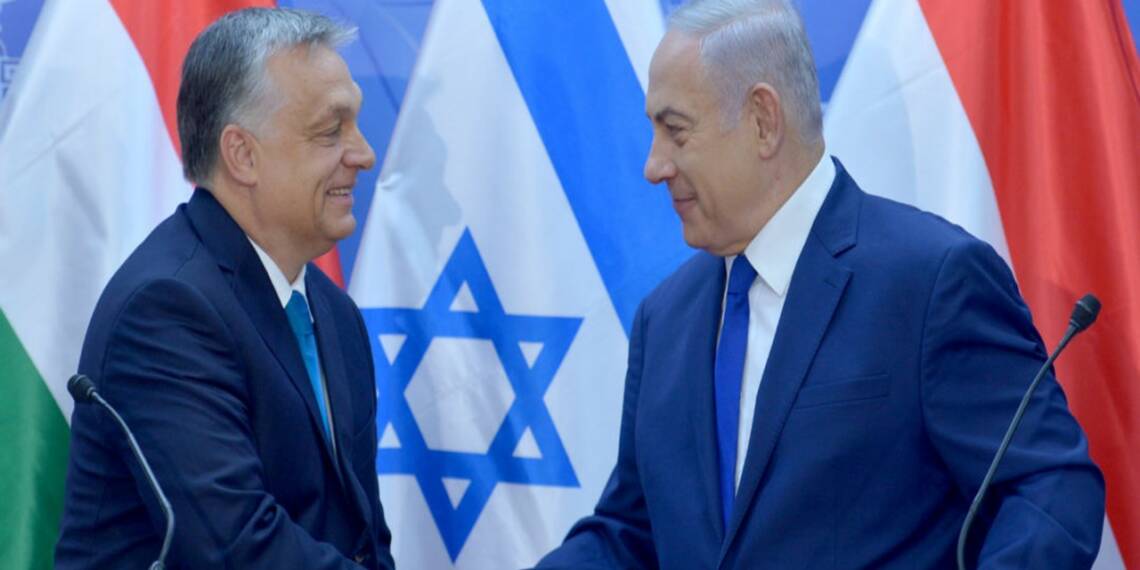The western world has always shied away from recognising Jerusalem as Israel’s capital because of their appeasement towards Palestine. Hungary however, is the only country to have come forward against the western whims.
Viktor Orban has once again stood in full support of Netanyahu, becoming the only ally to do so. Reportedly, a Israeli Newspaper has stressed that Hungary has plans to move its embassy from Tel Aviv to Jerusalem. Eli Cohen and Peter Szijjarto, Israel’s and Hungary’s foreign ministers, recently reached an agreement on the switch, the Israeli daily Zman Yisrael reported, citing sources in the Israeli foreign ministry.
The Israeli media report was not confirmed or denied by Hungary’s foreign ministry. However, a person with knowledge of the plans, who wished to remain anonymous due to the delicate nature of the change, confirmed that the switch will take place. This move has set off alarm bells in Brussels, with the EU condemning the decision as a hindrance to its long-term goal of a two-state solution for Israel and Palestine.
But, it’s a big move. The move will be perceived as a significant diplomatic victory for Netanyahu, who has faced criticism over his government’s controversial reforms aimed at overhauling Israel’s judicial system.
Israel is experiencing political turmoil. A proposal by Israeli Prime Minister Benjamin Netanyahu to substantially reduce the Supreme Court’s authority has sparked weeks of protests, alarmed the nation’s tech industry, and stoked concerns about possible political unrest.

Protests are now starting to spread even within the military of the country. Surprisingly, even Israel’s crucial Western allies like US have refrained from expressing support for Prime Minister Netanyahu. This explains the dissent which Netanyahu is reeling under as no public or political support is coming from him from anywhere.
Read More: Zelensky’s hilarious attempt to hold Hungary to ransom meets a tragic end!
Enemy’s enemy’s is a friend
Well, Viktor Orban is quite similar to Benjamin Netanyahu in terms of policy making and relationship with western allies. Both leaders have taken a nationalist approach to their country’s politics, pushing for policies that prioritize their own citizens over any other community or issue. They have also been criticized by western allies limiting democratic freedoms and undermining the rule of law.
In terms of their relationships with Western allies, both leaders have clashed with the European Union and other Western nations over issues such as immigration and human rights. Their actions have put them at odds with traditional Western allies and strained diplomatic relations. Orban knows that an enemy’s enemy is a friend and so, at a time when Western allies are sidelining Netanyahu over judicial reforms, Orban has extended a helping hand. In future, Israel will undoubtedly return Orban’s favor.








